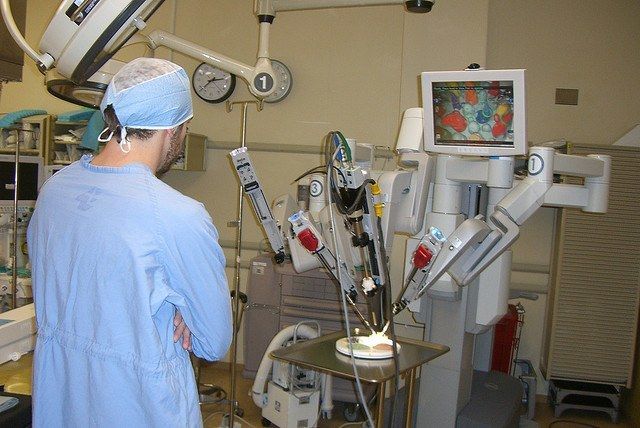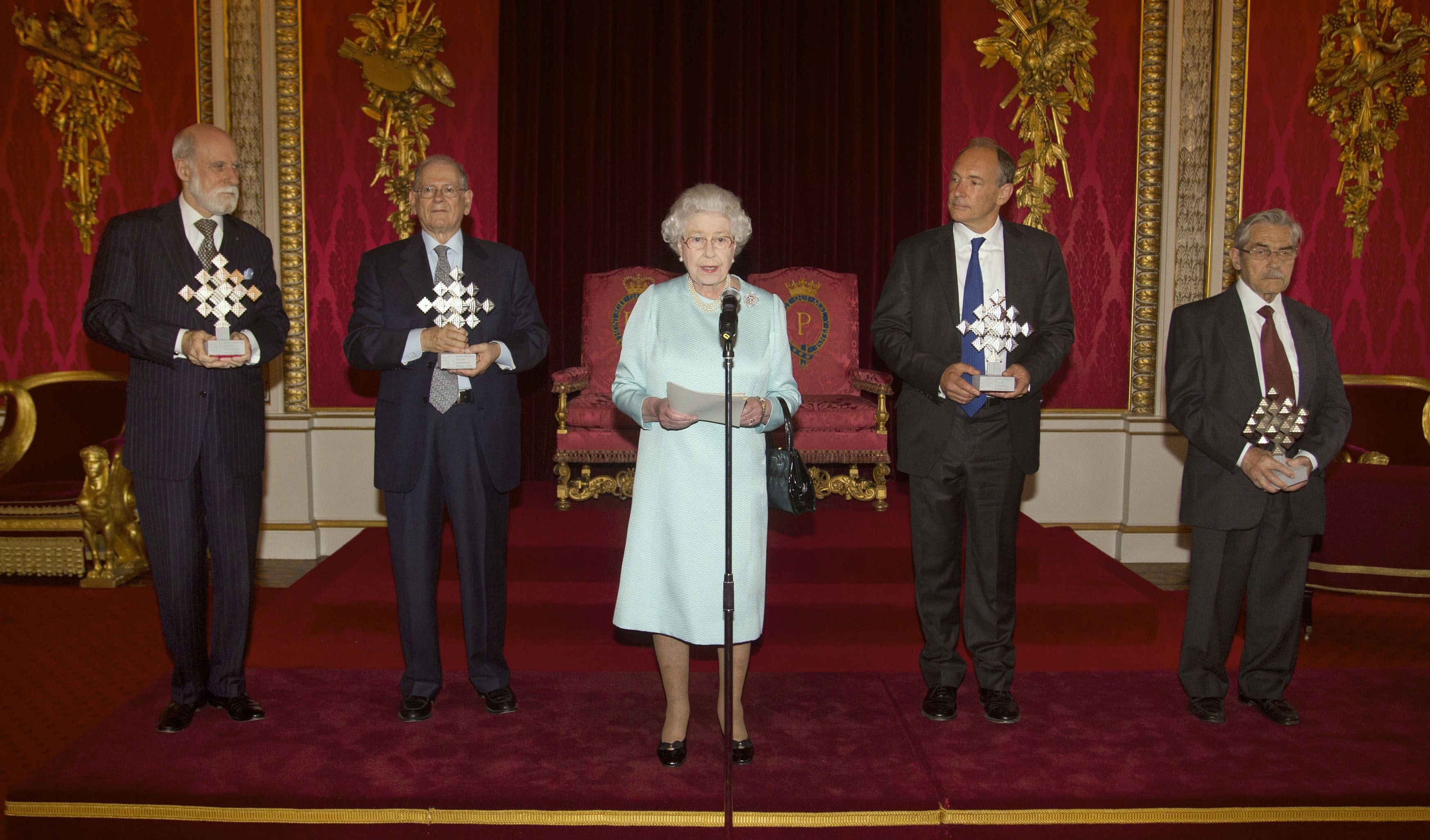Archive for the ‘internet’ category: Page 291
Jun 19, 2016
Dark bots: The cat-and-mouse game begins
Posted by Karen Hurst in categories: internet, robotics/AI, security
Will the good bots finish last in the war of bots? Dark bots are definitely not that easily stopped by AI in companies.
The bot era is here, and the world has already begun to see its transformative potential. But like any technology, there will be bad bots as predictably as good ones. With every advancement, there are people looking to exploit it. Anticipating what they might do is key so that builders, developers, and users can prevent, preempt, and prepare.
Here are the “dark bots” we’re likely to see:
Continue reading “Dark bots: The cat-and-mouse game begins” »
Jun 16, 2016
Media Reports: Xinjiang Residents Must Present DNA To Obtain Passports
Posted by Karen Hurst in categories: biotech/medical, internet, policy, privacy, terrorism
Biometrics using DNA along with other recognition technology brings additional identity protection; however, is it just me or are others understanding the risk with our DNA and other bio info being online given the existing weak infrastructure and under pinning technology. Without a QC secured internet and infrastructure; I would hesitate having my bio/ DNA information online for hackers and terrorists.
Once your identity with the DNA is online; it will be extremely hard to do a reset button on your identity because things like an id number such as a US Social Security number, etc. can be changed; but DNA identity is not that achievable even with CRISPR.
The official Yili Daily reported that from the first of June, residents of the Yili Kazakh Autonomous Prefecture in China’s far northwest must present the police with DNA samples, fingerprints, voice prints and a “three-dimensional image” when applying for travel documents.
Continue reading “Media Reports: Xinjiang Residents Must Present DNA To Obtain Passports” »
Jun 15, 2016
8 Digital Health Jobs of the Future to Watch
Posted by Karen Hurst in categories: 3D printing, 4D printing, computing, drones, employment, health, information science, internet, quantum physics, robotics/AI
Agree. So as a tech engineer, futurist, innovator, leader you have 3 key tracks to remain relevant in the future: bio/ living technology, quantum, and a hybrid of living/ bio meets quantum computing.
Editor s Note: Richard van Hooijdonk is a futurist and international keynote speaker on future technologies and disruption and how these technologies change our everyday lives. Van Hooijdonk and his international team research mega trends on digital health, robotic surgery, drones, the internet-of-things, 3D/4D printing, Big Data and other how new technologies affects many industries.
With people living increasingly longer lives, medical care from surgeons, physicians, pharmacists and dentists will increase as well. And since the future of healthcare will look very different from what it is today, the medical field may just be the right industry for you, even if being a doctor or nurse is not your calling. Many new technologies will be incorporated into the healthcare industry and we will see things like robotic surgeries and 3D-printed organ implants, to name a few. This means we will be seeing a whole new host of career opportunities, even for jobs that don t actually exist yet.
Continue reading “8 Digital Health Jobs of the Future to Watch” »
Jun 14, 2016
Court Backs Rules Treating Internet as Utility, Not Luxury
Posted by Karen Hurst in category: internet
Hmmm; wonder what the fallout will be as a result of this if other appellate courts, etc. rule the same.
An appeals court panel affirmed the Federal Communications Commission’s rules about net neutrality, clearing the way for stricter oversight of broadband providers.
Jun 13, 2016
New Device Sold on the Dark Web Can Clone Up to 15 Contactless Cards per Second
Posted by Karen Hurst in categories: cybercrime/malcode, internet, quantum physics
The things you learn on the DarkWeb. Wonder what will happen when more and more countries and folks onboard to the Quantum Internet, etc. Could we see one last massive apocalyptic raid on accounts, etc.?
X5 simplifies the process of stealing details from contactless debit cards, cloning fake debit cards.
A criminal group going under the name of The CC Buddies is selling a hi-tech device on the Dark Web that’s capable of copying details from contactless debit cards if held as close as eight centimeters away from a victim’s card.
Continue reading “New Device Sold on the Dark Web Can Clone Up to 15 Contactless Cards per Second” »
Jun 13, 2016
Nokia to build China Mobile’s cloud network
Posted by Karen Hurst in category: internet
Could there be a sweet revenge iin store for a particular large tech co. n the end?
HELSINKI: Nokia has signed a USD 1.53 billion frame agreement with China Mobile to create a “cloud network” for the Chinese operator, the Finnish telecom equipment giant said today.
The deal would entail “seamless connectivity that will more efficiently meet the ever-growing data demands of its subscriber base,” Nokia said in a statement.
Continue reading “Nokia to build China Mobile’s cloud network” »
Jun 11, 2016
Singapore is turning off the internet in drastic plan to bolster cybersecurity
Posted by Karen Hurst in categories: cybercrime/malcode, government, internet, quantum physics, satellites
Wow and just in time for China’s Quantum Satellite launch next month.
News about this “extreme” decision has drawn ire from many Singaporeans who have criticised the government’s decision on social media.
But, in a surprise move, the Singaporean government has resorted to limiting the Internet access for government work stations for over a year for security reasons. The system of “No internet” for public servants should be more clear-cut, experts say.
Continue reading “Singapore is turning off the internet in drastic plan to bolster cybersecurity” »
Jun 10, 2016
Why everything will be gone in a century and how to save it
Posted by Karen Hurst in category: internet
The “Father of the Internet AL Gore” — (just joking)
Vint Cerfis (known as the real Father of the Internet) is worried about the Digital Age disappearing.
Vint Cerf worries we’ll be no more than an “enigma.”
Continue reading “Why everything will be gone in a century and how to save it” »
Jun 10, 2016
Bluetooth 5 will be announced next week with four times the speed and double the range
Posted by Shailesh Prasad in categories: energy, internet
The next version of the Bluetooth standard is called Bluetooth 5, and will be formally announced next week, Bluetooth Special Interest Group executive director Mark Powell has revealed. Bluetooth 5 is expected to be a significant upgrade over the current version of the wireless standard, offering double the range and four times the speed of current low-energy Bluetooth transmissions, but the Bluetooth SIG says it will also offer much more support for connectionless services — things like beacons that can help people navigate inside buildings or out in the open.
The roadmap for the next version of Bluetooth was sketched out last year, but the SIG — which has tech giants like Apple, Intel, and Microsoft as backers — will officially lift the lid on Bluetooth 5 on June 16th in London. The group explains that it chose the name to simplify its marketing and make the wireless standard easier to understand for users. That change should be beneficial as our homes get smarter and more connected, with many Internet-of-Things devices relying on Bluetooth to connect to your control devices, and each other.

















